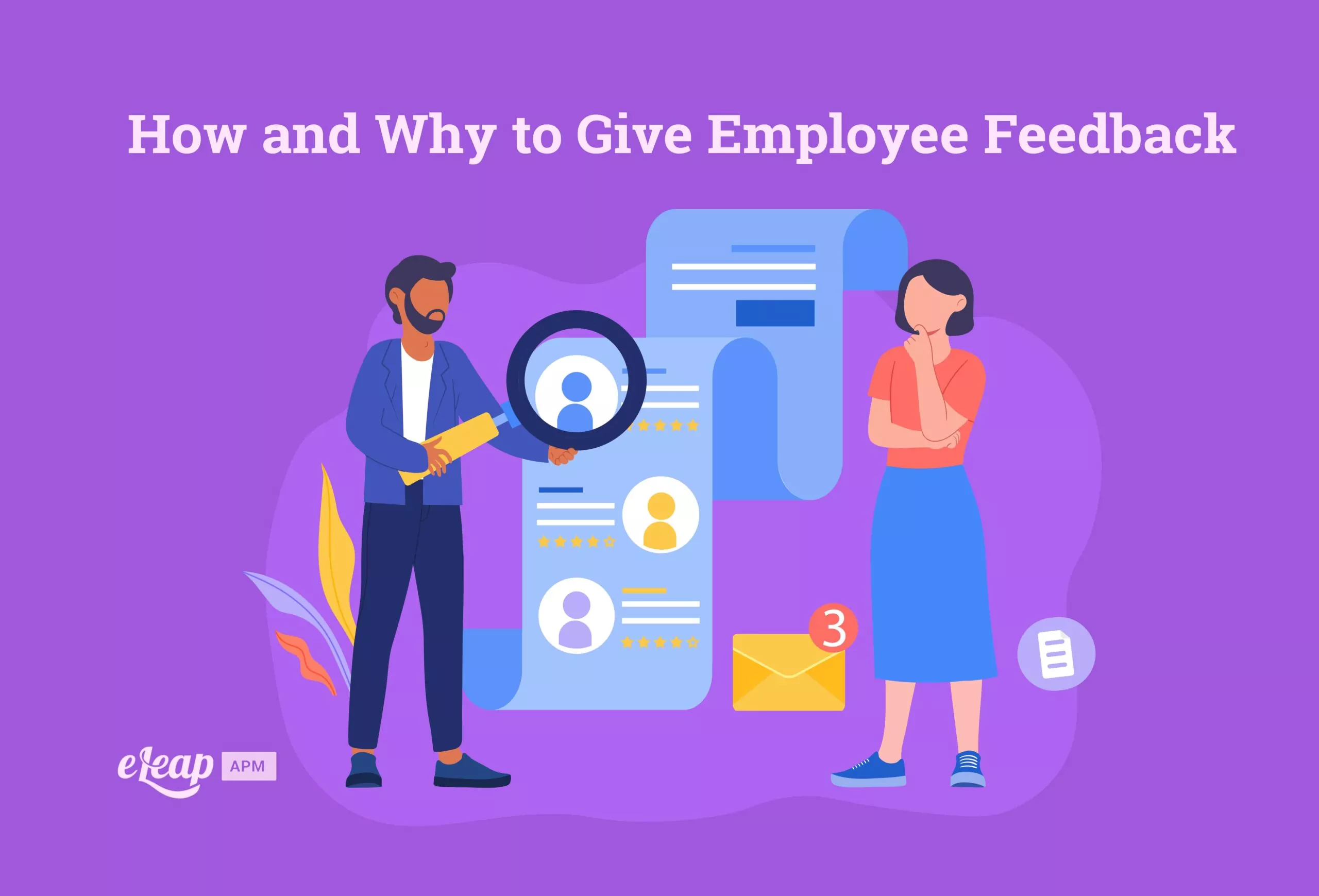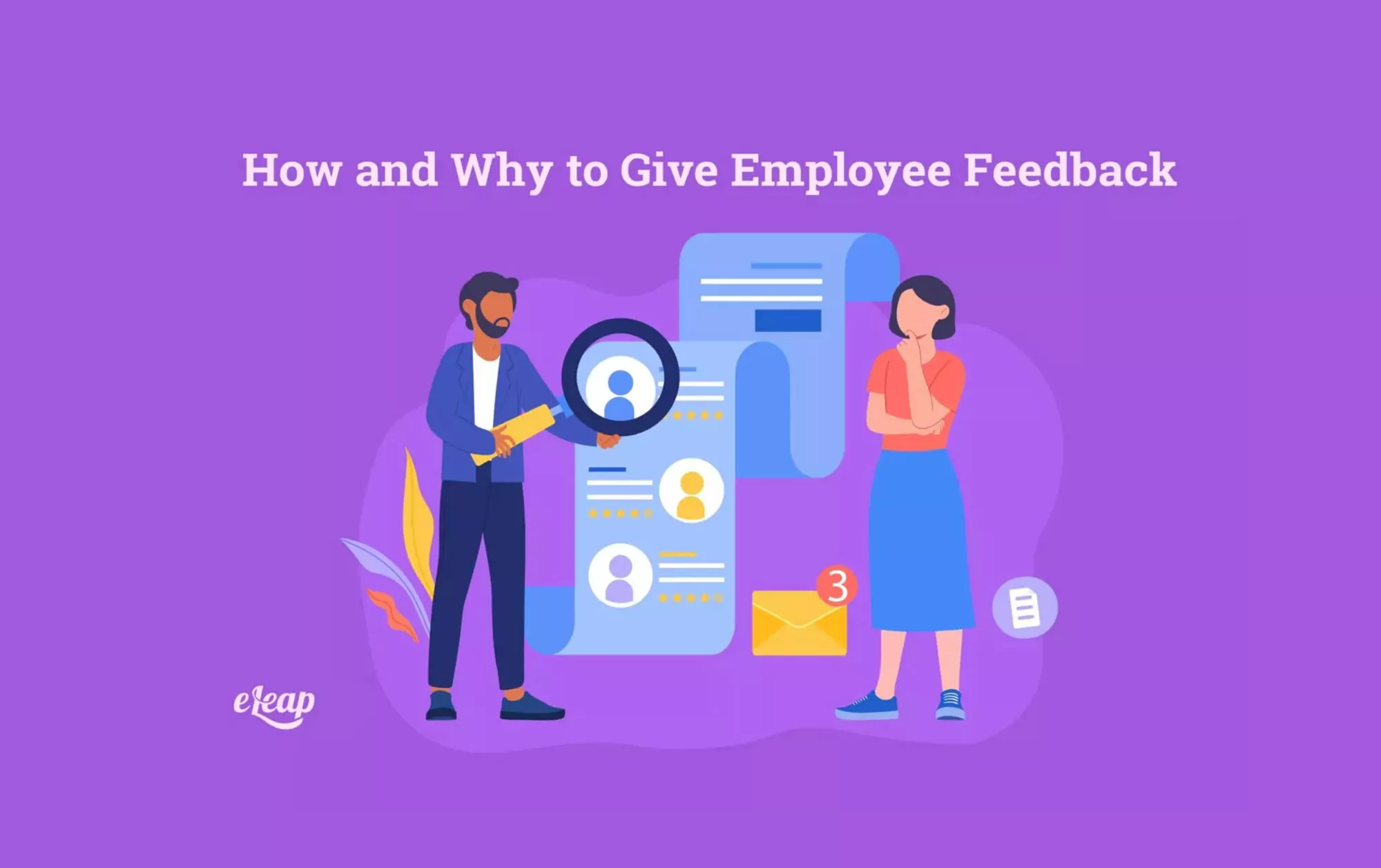How and Why to Give Employee Feedback

Are you providing your employees with feedback on their performance, or do you not give employee feedback regularly? While your team might be providing performance reviews, this is not the same as giving regular, helpful feedback. Providing feedback can help employees improve, encourage them, and help them start to perform better. Feedback shows that you are interested in helping them to succeed.

Below, we will be discussing the importance of employee feedback and some tips that can help to make it easier for you.
Why Feedback Is Important
People can’t improve in a vacuum. If they don’t know what they are doing right and what areas need improvement, how are they going to make changes? They won’t, and the same sorts of mistakes and problems will continue to crop up. Even those who are outstanding in their field need to have regular feedback throughout their careers. This is the only way someone can reach their full potential.
When you start to provide consistent feedback to your employees, you will find that they also show marked signs of improvement. It is going to benefit them and your company.
Benefits of Providing Feedback to Employees
Employers who provide their employees with regular feedback often report great results and a range of benefits. Let’s dive deeper into these benefits to see why you should give employee feedback.
Increased Productivity
A lot of times, people in the workplace may be intimidated when they are faced with certain tasks. This is especially true if it is something they haven’t done before. They might go slow at first. They might have been trained on how to do the procedure incorrectly, and they might not even realize they are doing anything wrong.
More Engagement
When you provide feedback, you show that you care about the company and about your employees. You want them to thrive. When they see that management cares about their performance, it can often increase the employee’s level of engagement. You are showing interest and investment toward them, and this makes them feel valued. When they feel this way, they are more likely to remain engaged in the workplace. They want to do well for you and the company.
Better Employee Retention
You might feel that feedback would cause some employees to leave or that some might have to be fired. While that can be the case in some instances, the opposite tends to hold true most of the time. When someone feels as though they are appreciated and that the company has an interest in them, they are more likely to stay at the company. They start to see that there is room for growth for them there since you are putting your interest into their performance and development. This will often make them consider staying at the organization because it could mean better things for their careers. Of course, you still need to make sure there are avenues for moving up in the company.
No Nasty Surprises During Reviews
If your company only gives quarterly or even annual performance reviews, you could run into some trouble. Someone might spend several months or longer performing their job and think they are doing well, only to discover during their performance review that they are having problems that need to be corrected. The better option is to provide regular feedback. Of course, there can be too much of a good thing, which we will discuss later.
Tips to Give Employee Feedback Effectively
As you can see, employee feedback is a great tool that can provide benefits like those mentioned above. It can help your people to grow and develop into better and more competent employees. However, there are right and wrong ways of providing feedback and advice.
Make the Feedback Specific
One area where many managers and employers fall flat is the specificity of the feedback. Many times, they are far too vague, telling employees that they need to “improve their work,” but they don’t provide clear examples. If you aren’t telling your employees exactly what needs to be improved and how to do it, you aren’t giving them true feedback. They can’t act on it, which could end up leaving them confused.
Therefore, when offering feedback, you want to be as clear and specific as possible. You should also let the employee know they are free to ask questions and to get more clarity if they need it.
Be Empathetic
When you talk with employees and provide feedback, you don’t want to do it from a position of being angry or gruff with the employee. You aren’t going to “scare them into doing a better job” for you. Instead, you need to approach the situation with empathy. They may not realize they are having issues at work and might see the feedback as being negative. There could be other underlying problems at play, and the employee may need a bit of support.
Instead of using negativity, you should frame the feedback in a positive light whenever possible. Let the employees know the benefits of the advice you are giving. You should also be willing to listen to them. They may have a good reason for lower productivity over the last month. It could be anything from tech issues to illness. Know the full scope of the problem, provide the feedback with empathy, and you will have better results.
Feedback Is Private
Never criticize someone in public, as it is going to cause a lot of problems for you. Making someone the center of attention in a meeting, especially when you are giving them feedback (positive or negative). Take the time to have private meetings with people when discussing their performance in the workplace. If you were to give feedback to people in public, it would embarrass them, and you are likely going to have employees who leave the company.
Be Wary of Providing Too Much Advice
Is there such a thing as too much feedback? If you aren’t careful, you could overdo it when you give employee feedback, but it will depend on the situation. There are those instances when giving someone feedback daily for little issues they are currently working to correct, which is going to be a problem. It will come across as micromanaging.
You will want to provide feedback to them initially, but you then need to see whether it takes hold or if you need to revisit them with more feedback. In other cases, more regular feedback could be warranted if the employee shows additional areas that need improvement. Regular feedback can be good, but you will want to monitor the situation to see how the employee progresses. Generally, waiting a few weeks or a month will work, but each situation is different.
Feedback Can Be Positive
Here is something that a lot of people end up forgetting. Many of us are used to worst-case scenarios, so when we hear the word feedback, it usually means trouble. People who know they are going to be getting “feedback” often worry. However, it doesn’t have to be that way. Feedback means letting someone know how they are doing. You can and should provide positive feedback for employees, as well. Let them know you are pleased with what they are doing. Sometimes, positive feedback might even come with a reward.
By normalizing the idea of feedback, you can start to strip away some of the negative implications surrounding it. Make sure your employees know that you provide regular feedback (monthly, weekly, etc.) and that it’s not punishment. It’s just a talk about how things are going, what’s going well, and what could be improved.
Keep the conversation going and follow up with employees to see how they are doing. Show that you care about how things are going and that you want them to do well. It can make a big difference.
Remember to Listen to Your Employees
Just as you need to provide good, regular feedback to the employees, you can expect that they will have some feedback for you, as well. There could be things that they feel could be improved on when it comes to processes, procedures, technology being used, training, how feedback is given, the company culture, and countless other areas.
You want to be an employer who listens and who makes reasonable adjustments to improve the workplace for the employees. This shows that there is mutual respect. The employees are more likely to listen to and follow through on your feedback if you are respectful to them and the feedback that they are providing you.
Give employee feedback regularly and when it makes sense to your company. Most of the time, you will find that the employees are willing to make the adjustments that are needed. Whether they need to slow down or be retrained, the feedback you provide has the potential to get them back on the right track.